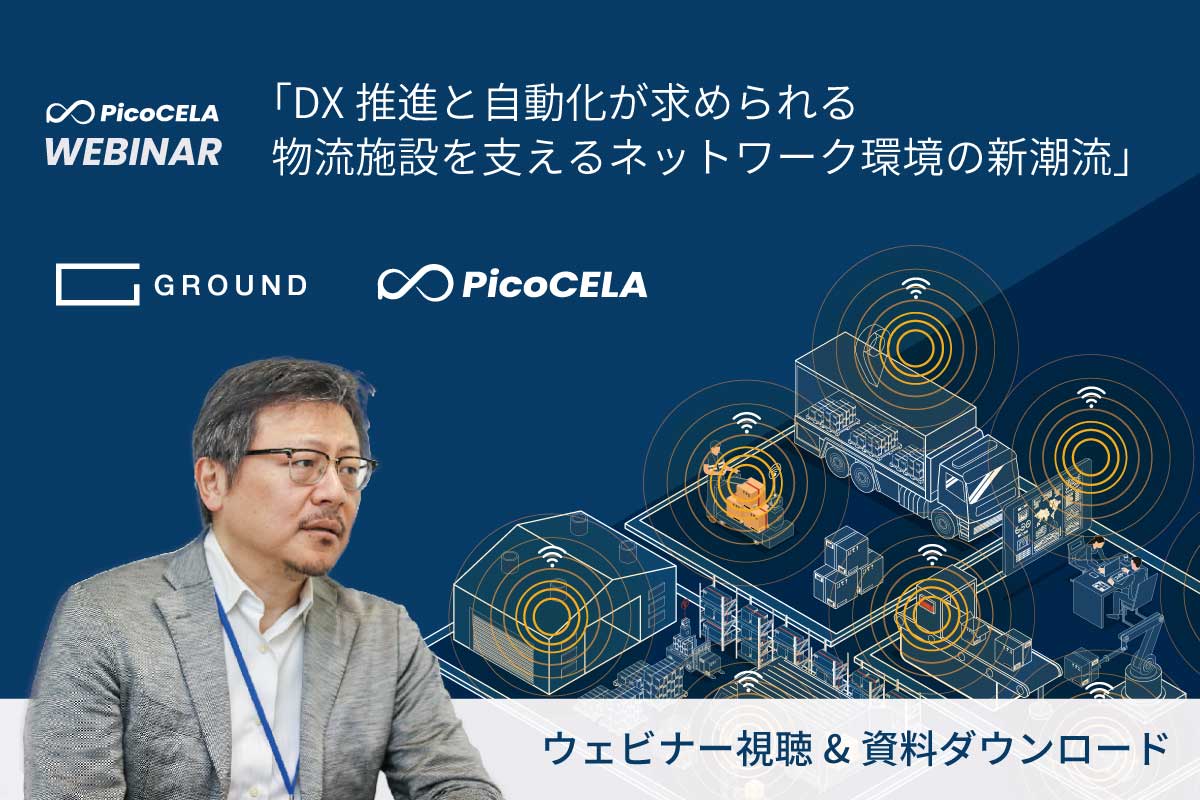●開催概要
名 称:WS07 - Wireless research and development led by emerging talents, SME and start-up towards B5G/6G Era
主 催:IEEE
会 期:2022年9月12日(月) 12:30-15:30
会 場:オンライン
参加費:無料
●プログラム
12:34-13:04
Invited Paper 1
「Super-Edge Node Enabled by Wireless Mesh and Its Evolution Toward Universal Platform for Digital Twin Dominated World」
Hiroshi Furukawa (PicoCELA Inc., Japan)
アブストラクト(英語)
With COVID-19 as an initiation, the stage for human socioeconomic activities is rapidly shifting from physical space to cyberspace. Mobile networks have evolved as essential communication networks for connecting individuals and things to the cloud. Further evolution of mobile networks is essential to realize Digital Twin. In particular, low latency and guaranteed QoS using network slicing are extremely challenging requirements that legacy mobile networks until 4G have not been able to meet. In addition, the chronic shortage of spectrum accompanying the shift to broadband continues to encourage the use of small cells, which naturally make xHaul problem be more serious. The author has worked on this xHaul problem in both academia and industry for 20 years, developing a unique WLAN mesh protocol for backhaul. In order to bring the results of this research to practical use, PicoCELA Inc. as a vehicle for commercialization of the fruits, was incorporated. The edge device brought by PicoCELA with the WLAN mesh capability are linked to a cloud server and are serving various applications as a general-purpose platform to facilitate the introduction of Digital Twin. This paper reviews the history of WLAN mesh technology to date, identifies the technical issues that arise when using it in an enterprise scenario, and then provides an overview of how PicoCELA's WLAN mesh addresses these issues. The PicoCELA solution as an edge platform is overviewed, followed by some real-world use cases. Finally, the outlook for mobile communications in the future is summarized.
アブストラクト(日本語)
コロナ禍を契機とし、人類の社会経済活動の舞台は物理空間からサイバー空間へと急速に移行しています。モバイルネットワークは、個人とモノをクラウドにつなぐために不可欠な通信ネットワークとして進化してきました。デジタルツインの実現には、モバイルネットワークのさらなる進化が欠かせません。特に、ネットワークスライシングによる低遅延とQoSの保証は、4Gまでのレガシーモバイルネットワークでは対応できていなかった極めて困難な要件です。また、ブロードバンド化に伴う慢性的な周波数不足は、スモールセルの利用を促し続けており、バックホールをはじめとするxHaulの問題はより深刻なものとなっています。筆者は20年来、このxHaul問題に産学で取り組み、独自のバックホール用WLANメッシュプロトコルを開発してきました。この研究成果を実用化する手段としてPicoCELA社は誕生しました。PicoCELA社が市場投入しているWLANメッシュ機能を持つエッジデバイスは、クラウドサーバと連携し、デジタルツインの導入を促進する汎用プラットフォームとして、様々な場面で活用されています。本稿では、これまでのWLANメッシュ技術の歴史を振り返り、性能要件の厳しいエンタープライズ市場で活用する場合の技術的課題を明らかにした上で、PicoCELAのWLANメッシュがこれらの課題にどのように対処したかを概観します。また、エッジプラットフォームとしてのPicoCELAソリューションの概要と、実際のユースケースも紹介します。最後に、今後のモバイル通信の展望についてまとめています。
13:04-13:58
「Development of Evaluation Systems for Large- Scale Wi-SUN FAN-Based IoT Applications」
Yoshio Kashiwagi (Nissin Systems, Japan); Hiroshi Harada and Hiroko Masaki (Kyoto University, Japan); Kazuki Osumi (Nissin Systems, Japan)
「Development of Robotic System Without Wired Connections at Joints by Wireless Communication and Wireless Power Transfer」
Kazunobu Serizawa (Advanced Telecommunications Research Institute International, Japan); Satoru Shimizu (ATR, Japan); Hiroo Sekiya (Chiba University, Japan); Masataka Ohira (Saitama University, Japan)
「A Study of Proximity Sensor Circuit Focusing on Variations in Antenna Impedance」
Takuya Kurihara and Kazunobu Serizawa (Advanced Telecommunications Research Institute International, Japan); Satoru Shimizu (ATR, Japan); Toshikazu Sakano (Advanced Telecommunications Research Institute International, Japan); Shintani Kazuki, Koudai Nagatomo, Hisato Iwai and Shinsuke Ibi (Doshisha University, Japan)
14:03-14:33
Invited Paper 2
「An R&D Program to Evolve Resilient Radio Resource Utilization and to Develop SMEs, Start-Ups and Young Talents to Lead Future Wireless Technology」
Toshikazu Sakano (Advanced Telecommunications Research Institute International, Japan); Satoru Shimizu and Kazuto Yano (ATR, Japan); Hiroshi Harada (Kyoto University, Japan)
14:33-15:27
「An Untrained DNN Denoiser for Uplink Channel Estimation in Multicell Massive MIMO System」
Yatharth Bansal (Huazhong University of Science and Technology, China); Abhay Kumar Sah (IIT Roorkee, India)
「Optimizing Q-Learning-Based Access Control Scheme Based on Q-Table Compression Method」
Babatunde Ojetunde (Advanced Telecommunications Research Institute International (ATR), Japan); Kazuto Yano (ATR, Japan)
「Energy Saving in LEO-HTS Constellation Based on Adaptive Power Allocation With Multi-Beam Directivity Control」
Jinming Zhao, Yong Li and Zeyu Hu (Beijing University of Posts and Telecommunications, China); Jing Wang (DOCOMO Beijing Communication Laboratories Co., Ltd, China)
皆様のご参加、お待ちしております。


